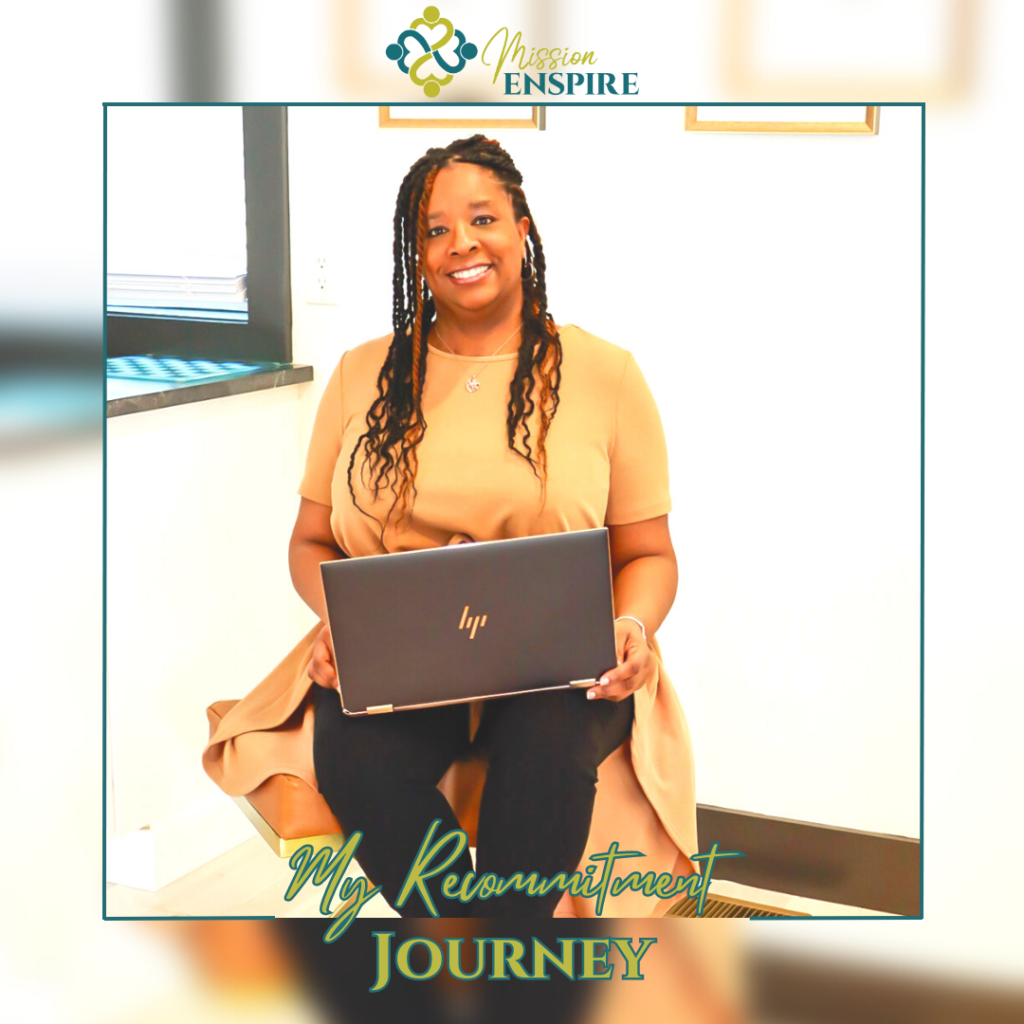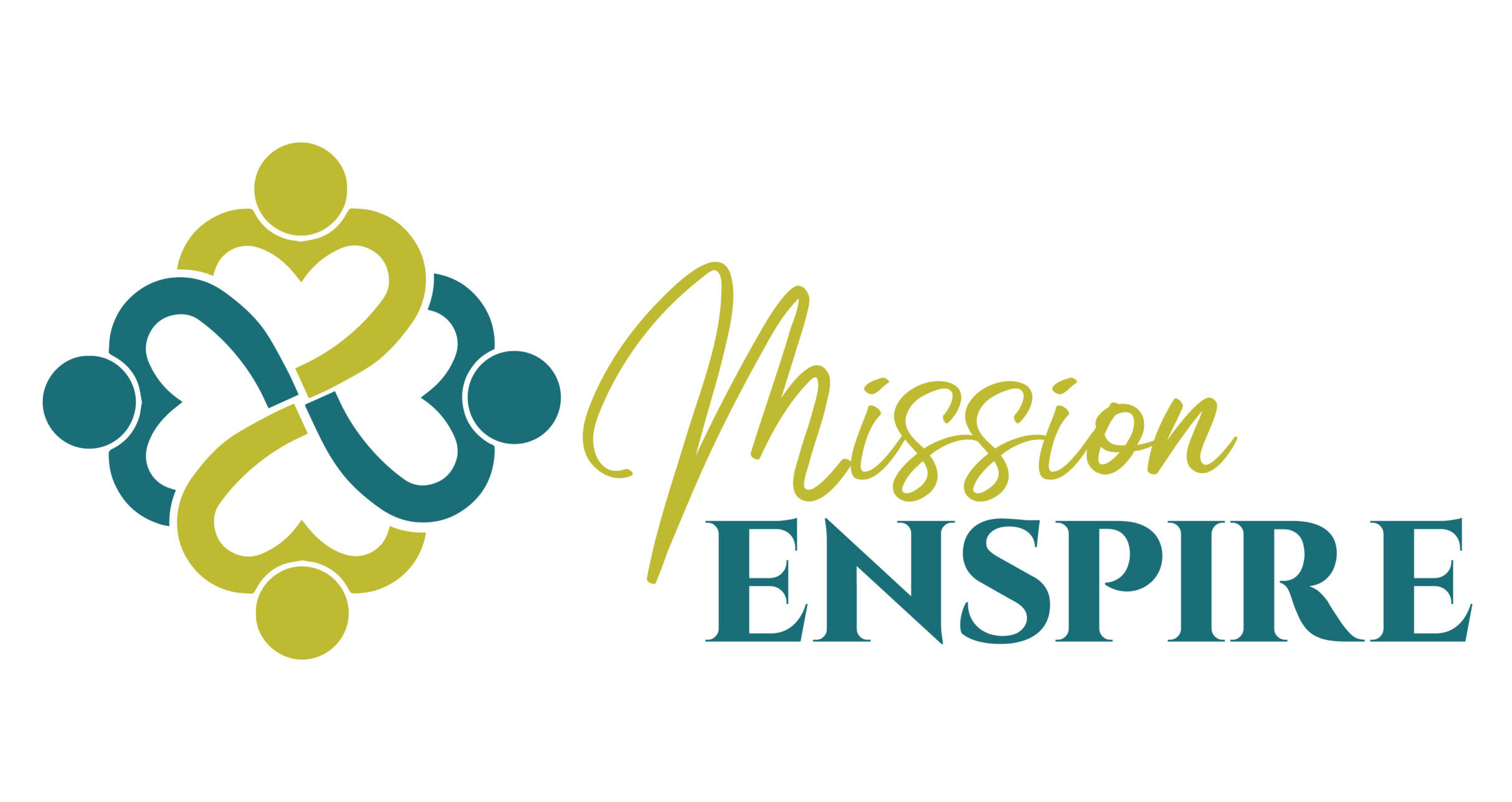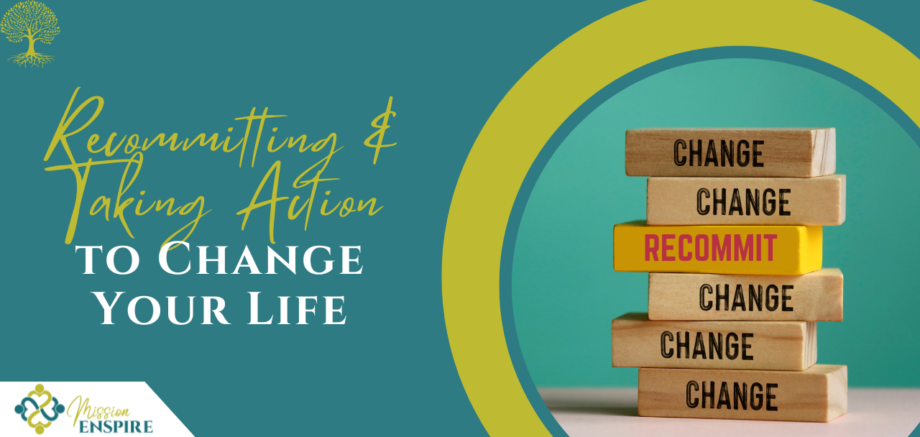May is National Recommitment Month, and I’m excited to spend this month’s Flourishing Fiercely blog series reflecting and writing about what “recommitment” means to me and how you can recommit in your own lives. It’s easy to get off track with our goals, get stuck in a rut, or feel like time is just passing by while we go through the motions of our day to day lives. (Who else can’t believe it’s May–one-third of the way through 2023!–already?) Sometimes we need to declare a bold intention to live our lives and work toward our goals more mindfully, to recommit to what’s important to us. Perhaps it’s recommitting to a relationship, a hobby, your career, or a goal. Maybe it’s something that we let slip to the back burner for a few weeks, or maybe it’s something we let lapse years ago that we’re ready to focus on again–recommitment can take many forms.
Stop Reacting And Start Taking Action
Deciding to take charge of your own life can be a daunting task. You may not even know where to begin. You simply feel that you’ve been going with the flow for far too long. The good news is that there is no one right way to get started. The key is just to do something. Taking action of any kind will likely motivate you to take more steps toward transforming your life. Here are some suggestions to get you moving along your path.
Set Goals and Objectives
The first step to actively changing your life is to assess your current situation and then to decide where it is you’d like to go. If you’re feeling unhappy with your life as it is and that you’re not in charge of things, ask yourself some questions to determine why that is. Write down your answers and use them to spur you on toward making a plan for the future. Questions about what you truly desire, what you feel you’re missing, how you’d like to live and what’s most important to you are good ones to start with. Then just continue to build on them until you’ve formed a good foundation for your planning. Next, write out some tentative goals. Start with a long-term goal, such as where you see yourself in five years, and then break it down from there. Decide on a few short-term goals to complete over the next year that would ultimately lead you to that five-year mark. Create small tasks to help you along the way. (Check out my April blog series for a deeper dive on setting SMART goals, maintaining motivation and accountability, and making those goals a habit for the long term.)
Make Changes
Once you have a tentative plan laid out, it’s easier to actually take some concrete action. You can now begin to make the small changes that add up to big transformation. Now is the time to begin to do things differently. Take a look at your lists of goals for inspiration. The tasks you laid out to help you reach your goals are a good place to start. Do just one thing from your list each day, and you’ll be actively making changes toward reaching your truest desires. You can look for other ways to take action, too. For example, try new things or meet new people. Anything that takes you from your comfort zone and moves you toward where you want to be is good.
Let Things (and People) Go
Finally, it’s important to note that you will probably have to let some things, and some people, go in order to reach your goals. Old habits may be keeping you stuck, so you’ll need to ditch them. Sometimes people are what’s holding you back. There are likely to be some friends and loved ones who don’t react positively to the changes you’re making in your life. Take note of such things and act on them accordingly. If you’re not ready to remove someone from your life entirely, perhaps just setting boundaries will suffice.
Keep these ideas in mind when you begin taking action toward changing your life. Remember, every little step counts. What’s important is that you just do something.

I recently recommitted to a longtime goal: becoming an ICF-credentialed coach. ICF (the International Coaching Federation) is a membership organization for coaches and offers some of the most robust and most internationally-recognized professional credentials for coaches. Though I’ve taken numerous coaching trainings and been a coach and trainer since 2013, I’ve always wanted to take my coaching practice and professional development to the next level by achieving the ICF credential. In fact, it’s been a professional goal of mine for seven or eight years but something always got in the way–time, finances, procrastination, etc.–and the path seemed a little daunting (yes, even coaches struggle with self-doubt!)
Last year, I decided to recommit myself to my ICF credential goal, and decided to follow my own advice by taking it one step at a time, starting with research on additional ICF-vetted coach training programs that aligned with my values, the goals of my company Mission ENSPIRE, and my budget. I was so fortunate to find Coaching for Everyone, an organization whose mission is to “certify the next generation of BIPOC coaches.” (Coaching for Everyone also seeks to “offer complimentary coaching and leadership support to traditionally underserved and under-resourced BIPOC populations,” which aligns with the mission of my business as well.)
This year, I’ve set myself the goal of finalizing my training by completing and documenting the 100 hours of paid coaching experience required for the ICF credential. I’ll admit, 100 hours sounded like a lot to me at first–especially with juggling my business, my day job in the community development industry, and my family responsibilities–but again, I’m taking it one hour at a time! Now that I’ve recommitted to my goal, I feel more motivated to achieve it than ever, and I plan to use this Flourishing Fiercely reader community as an accountability partner–so stay tuned for updates on my progress in the coming months!

